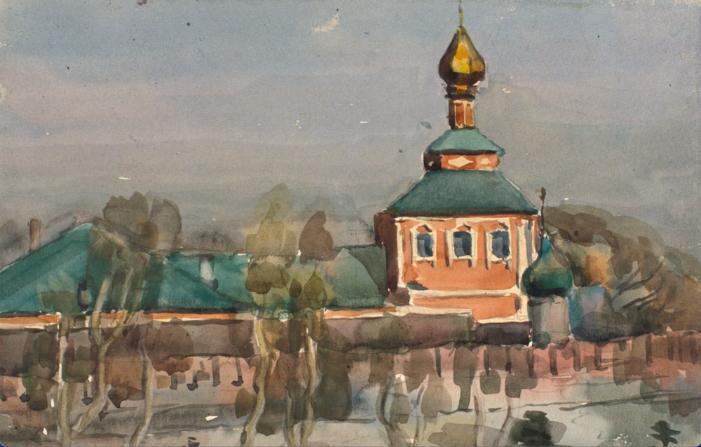Today In History: Voices of America Broadcasts to Russia

Designed to explain America's policies during World War Two and raise morale, Voices of America, the largest and oldest United States funded international broadcaster, was a powerful tool. On February 17th, 1947, it reached out to Russia with the simple words, "Hello, this is New York calling." During the early days of the Cold War, Americans sought to counter Russian media coverage of American government and policies, and also provide news, human-interest stories, and music, particularly jazz, to Russia -- offering a distinct view of American life, while building interest and relations with our nation. Voices of America in its broadcasts to Russia became controversial, at times seen as propogandistic, in influencing public opinion behind the Iron Curtain. It reportedly led to interference in reception ("jamming") as early as 1949. The Voices of America radio programs in Russia still lasted for decades, beyond the end of the Cold War (1947-1991), but were officially ended in July 2008 to allow concentration of the service to other parts of the world.
The following articles are drawn from Proquest Historical Newspapers, which informs and inspires classroom teaching and learning.
- Bessie, S. M. (1947, Jan 12). America Is Speaking Its Piece: Short-Wave Radio Is Our Government's Big Weapon Against International Distrust-- Its Ammunition Is the Unvarnished Truth. New York Herald Tribune (1926-1962)
- Childs, M. W. (1947, May 07). Washington Calling: The Voice Of America. Newsday (1940-)
- Topics Of the Times. (1947, May 15). New York Times (1923-)
- Russia Brands U.S. 'Voice' Liar On Devaluation: Says Broadcasts Distorted Soviet Economic Woes; U. S. Shuns Direct Reply. (1947, Dec 22). New York Herald Tribune (1926-1962)
- Ward, P. W. (1948, Jan 11). Russian Irritation Growing Over 'Voice Of America'. The Sun (1837-)
- Allen, G. V. (1948, Dec 12). The Russians Are Listening: Here's a Report On Our Vital Radio Stragegy In the Cold War. Los Angeles Times (1923-1995)
- Smith, W. B. (1949, Nov 19). My Three Years In Moscow: Installment 14: America Makes Herself Heard. New York Times (1923-)
- Ruth, R. W. (1950, Apr 30). The Voice Of America. The Sun (1837-)
- Voice Of America Blares Steady Chant At Soviets: Problem Is Jamming Amusing False Alarm. (1950, Nov 02). The Christian Science Monitor (1908-)
- Gleason, G. (1951, Jun 22). Fighting Russian Radio Propaganda: An Analysis Of the Effectiveness and Techniques Of the Counter-Attacks. New York Herald Tribune (1926-1962)

Tips:
- First US Broadcast to USSR. New York, America (USA). "Exterior L/S view of the wireless station at Brentwood, Long Island, U.S.A. from which the broadcast was made. M/S wireless engineers checking over the equipment. Various shots teleprinters at work various shots map of the world showing outgoing broadcasts, M/S as they add line to USSR. C/U broadcaster speaking into the microphone which reads The Voice of the United States of America." Note: silent video.
- Parta, R. Eugene. Discovering the Hidden Listener an Assessment of Radio Liberty and Western Broadcasting to the USSR During the Cold War : A Study Based on Audience Research Findings, 1970-1991. Stanford, Calif: Hoover Institution Press, 2007. e-book
- The Image of the Voice of America as Drawn in Soviet Media: Prepared for the Office of Research and Intelligence, United States Information Agency. New Brunswick: New Jersey: Rutgers University, 1954. e-book
- A Comparison of the English Language Services of the Voice of America, the British Broadcasting Corporation [and] Radio Moscow, from Broadcasts During December, 1953. Content Analysis by Research Personnel in the Institute of Communications Research. University of Illinois. [Contract SCC-21437, with the United States Information Agency.]. Illinois: N.p., 1954. e-book

Images:
- Old Russian Architecture, by Kolgan Uri, Ziegfeld Collection of International Children's Art, Courtesy of Teachers College, Columbia University
- Russian Cloth Market: Nijni Novgorod, Russia, Rothman Lantern Slide Collection
- Digging the New Moscow Subway, Rothman Lantern Slide Collection
Need to keep current, look to the past, teach a topic? The Everett Cafe features daily postings of news from around the world, and also promotes awareness of historical events from an educational context. Be sure to check additional Cafe News postings on the library blog.


